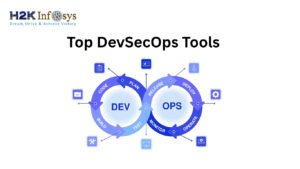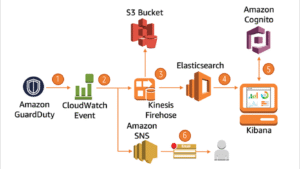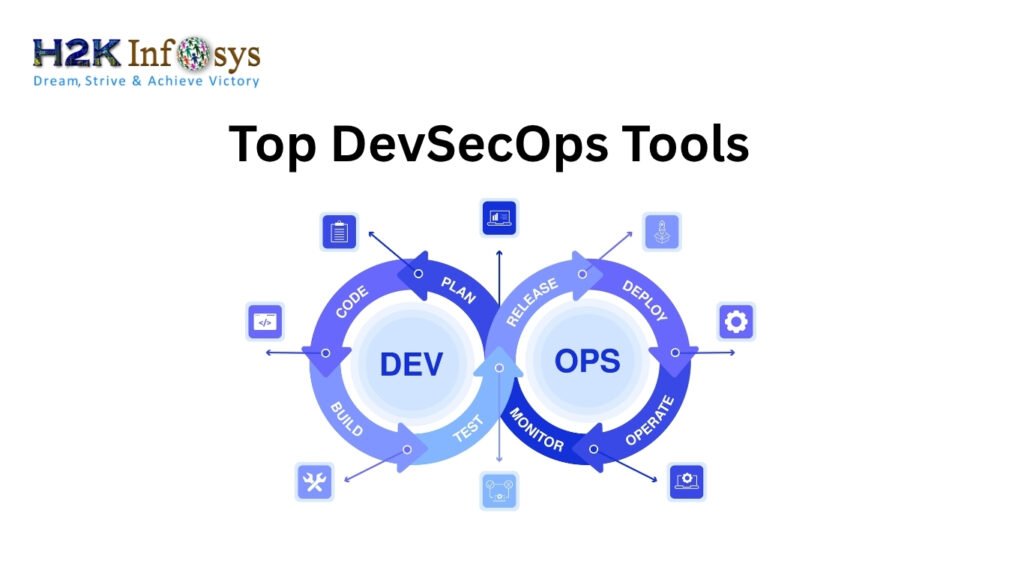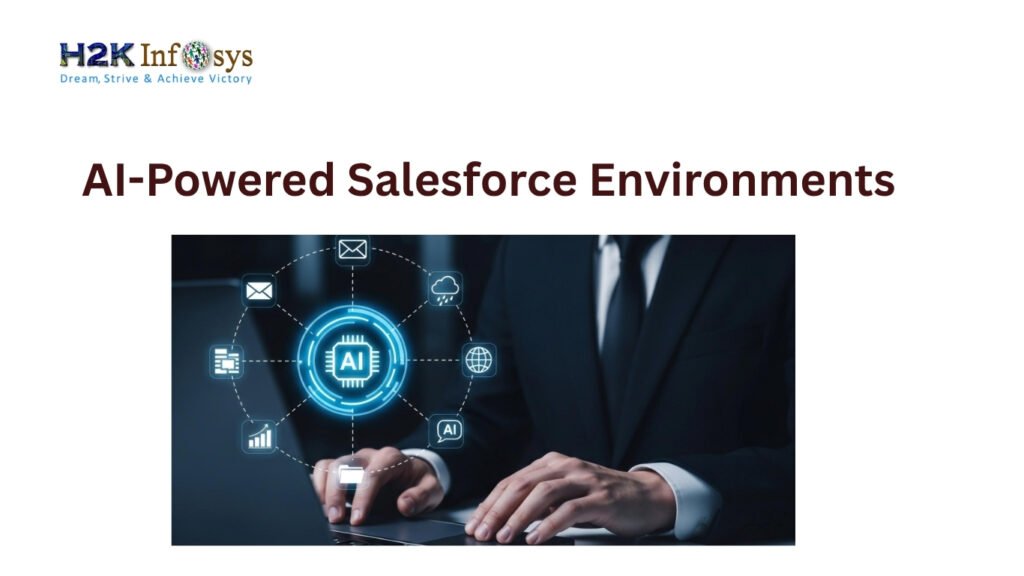In today’s data-driven world, managing customer relationships effectively is crucial for organizations of all sizes. Salesforce, a leader in customer relationship management (CRM), offers powerful tools that empower businesses to streamline their processes, improve customer relationships, and drive growth. This article will delve into the basics of Salesforce Admin and App Builder, providing a comprehensive guide to help beginners start their journey toward mastering these essential skills.

Why Learn Salesforce Admin and App Builder?
Salesforce Administration and App Building are vital skills for anyone looking to work in the tech industry or enhance their career prospects. With a growing demand for professionals who can manage Salesforce platforms, understanding these fundamentals can lead to numerous career opportunities.
- Growing Demand: As more businesses adopt cloud-based solutions, the need for skilled Salesforce professionals continues to rise. Companies seek individuals who can maximize the potential of their Salesforce implementation.
- Career Advancement: Learning Salesforce Admin and App Builder skills can significantly enhance your career prospects and open doors to higher-paying roles. Certified professionals often command higher salaries and enjoy more job security.
- Flexibility: Knowledge of Salesforce enables you to work across various industries, as companies from finance to healthcare rely on this platform. With Salesforce skills, you can adapt to different business environments and demands.
Understanding Salesforce Admin
What is Salesforce Administration?
Salesforce Administration involves managing and configuring the Salesforce platform to meet the needs of an organization. This role encompasses various responsibilities, including user management, data management, security, and customization of the Salesforce environment.
Key Responsibilities of a Salesforce Administrator
- User Management: Administrators are responsible for managing user accounts, roles, and profiles. This includes creating and deactivating users, assigning roles, and ensuring users have the necessary permissions to access data and features.
- Data Management: Effective data management is crucial for any organization. Salesforce Administrators oversee data import/export processes, data quality, and data cleansing to maintain accurate records. This involves using tools like Data Loader and Data Import Wizard to handle large datasets efficiently.
- Security Management: Ensuring the security of sensitive information is a top priority for any organization. Administrators configure sharing settings, profiles, and permission sets to control data access based on user roles. They also monitor login history and user activity to detect any unauthorized access.
- Customization: Administrators can customize the Salesforce platform to align with business processes. This includes creating custom objects, fields, record types, and page layouts to enhance user experience and improve functionality. Understanding Salesforce’s declarative customization options allows administrators to tailor the platform without coding.
- Reports and Dashboards: Salesforce Administrators create and manage reports and dashboards that provide insights into business performance. This enables stakeholders to make data-driven decisions based on accurate information. Learning to use report types, filters, and grouping options is crucial for effective reporting.
Essential Skills for Salesforce Administrators
- Understanding of CRM Concepts: A strong grasp of customer relationship management concepts is essential for effective Salesforce administration. Familiarity with key terms like leads, opportunities, accounts, and contacts will help administrators navigate the platform efficiently.
- Technical Proficiency: Familiarity with the Salesforce platform, including navigation and basic functionality, is crucial. Understanding the relationship between standard and custom objects enhances the administrator’s ability to configure the system effectively.
- Problem-Solving Skills: Administrators must be adept at identifying and resolving issues that arise within the Salesforce environment. This includes troubleshooting data inconsistencies, user access problems, and configuration errors.
- Attention to Detail: Ensuring data accuracy and system configuration requires a keen eye for detail. Small errors in configuration can lead to significant issues in data access or reporting.
- Communication Skills: Administrators often interact with various stakeholders, making strong communication skills essential for success. They must translate technical jargon into understandable terms for non-technical users.
Introduction to App Builder
What is App Builder?
App Builder is a powerful feature within Salesforce that allows users to create custom applications without needing extensive programming knowledge. It offers a drag-and-drop interface that simplifies the app development process, enabling users to build applications that meet specific business needs.
Key Features of App Builder
- Custom Objects: App Builder allows users to create custom objects tailored to their business requirements. Custom objects enable organizations to store unique data types relevant to their operations. For instance, a company might create a custom object for tracking client projects.
- Lightning Components: App Builder utilizes Lightning components, which are reusable building blocks that enhance app functionality and user experience. Users can drag and drop these components to create dynamic interfaces, significantly speeding up the development process.
- Page Layouts: With App Builder, users can design page layouts that control the organization of fields and related lists on records. This customization ensures that users can access the most relevant information quickly and efficiently.
- Process Automation: App Builder supports process automation features, allowing users to create workflows and approval processes that streamline business operations. Automating repetitive tasks can significantly enhance productivity and reduce errors.
- Integration with Salesforce Features: App Builder seamlessly integrates with other Salesforce features, enabling users to leverage the full capabilities of the platform when building applications. This integration enhances the functionality and usability of custom applications.
Essential Skills for App Builders
- Understanding of Salesforce Data Model: Familiarity with the Salesforce data model is crucial for effective app development. Understanding relationships between objects will help create meaningful applications that interact seamlessly with the existing data structure.
- Basic Understanding of UI/UX Principles: Knowledge of user interface (UI) and user experience (UX) principles can significantly enhance the usability of the applications built. Effective design ensures users can navigate the app easily and find the information they need.
- Problem-Solving Abilities: App Builders must be able to identify business challenges and design solutions that address those needs effectively. This involves gathering requirements and understanding the pain points of end-users.
- Collaboration Skills: Often, App Builders work with various stakeholders to gather requirements and feedback, making collaboration skills essential. Engaging with users to understand their needs will result in more effective applications.
- Adaptability: The Salesforce platform is constantly evolving. App Builders must stay updated on new features and best practices to ensure their applications remain relevant and effective.
Getting Started with Salesforce Admin and App Builder
Setting Up Your Salesforce Environment
- Create a Salesforce Account: Start by signing up for a free Salesforce Developer Edition account. This will give you access to the platform and allow you to explore its features. The Developer Edition provides a full-featured environment for building and testing applications.
- Familiarize Yourself with the Interface: Spend some time navigating the Salesforce interface. Understanding the layout and key features will help you feel more comfortable as you begin to learn. Explore the various tabs, settings, and navigation options to get acquainted with the environment.
- Explore the Help and Training Resources: Salesforce offers a wealth of resources, including documentation, videos, and online courses, to help you learn the basics. Utilize these resources to build your foundational knowledge. The Salesforce Help and Training portal is an excellent starting point.
Learning Resources
- Online Courses: Many online platforms offer courses specifically tailored to Salesforce Administration and App Builder. Look for courses that provide hands-on projects and real-world examples. Practical exercises will help reinforce your understanding.
- H2KInfosys: A free, interactive learning platform from Salesforce, H2KInfosys offers modules and trails that guide you through various topics, including administration and app development. Completing Trailhead badges is a great way to demonstrate your knowledge and skills.
- Community Forums: Engage with the Salesforce community through forums and discussion boards. Connecting with other learners and experienced professionals can provide valuable insights and support. Participate in discussions and ask questions to deepen your understanding.
- Books and Guides: Consider investing in books or study guides that cover Salesforce Administration and App Builder concepts in depth. Look for resources that align with the latest Salesforce releases to ensure you’re learning up-to-date information.
Practical Experience
- Hands-On Practice: The best way to learn is by doing. Start building simple applications and experimenting with administrative tasks within your Salesforce Developer Edition account. Challenge yourself with real-world scenarios to test your skills.
- Participate in Projects: Join local user groups or online communities to find opportunities to collaborate on projects. Practical experience will enhance your understanding and reinforce your skills. Working on projects will also help you build a network within the Salesforce community.
- Build a Portfolio: As you gain experience, create a portfolio showcasing your projects and applications. This will be valuable when seeking employment or freelance opportunities. Include detailed descriptions of your projects and the challenges you overcame.
Networking and Community Engagement
- Join Salesforce User Groups: Participating in local user groups can provide networking opportunities and a chance to learn from others’ experiences. These groups often host events, workshops, and meetups that foster collaboration and knowledge sharing.
- Attend Salesforce Events: Conferences and events like Dreamforce provide opportunities to connect with industry leaders, learn about the latest trends, and network with peers. These events can also help you stay informed about new features and best practices.
- Engage on Social Media: Follow Salesforce professionals and thought leaders on platforms like LinkedIn and Twitter. Engaging with their content can provide insights and keep you updated on industry trends.
Advanced Topics in Salesforce Admin and App Builder
Data Management Strategies
- Data Import and Export: Learning how to effectively import and export data using tools like Data Loader and Data Import Wizard is crucial for managing data within Salesforce. Understanding different file formats and data mapping is essential for successful data operations.
- Data Quality Assurance: Maintaining high data quality is vital for effective decision-making. Learn techniques for deduplication, validation rules, and data cleansing to ensure your Salesforce data is accurate and reliable.
- Using Reports and Dashboards: Advanced reporting techniques can help visualize data trends and performance metrics. Familiarize yourself with custom report types, cross-object reporting, and dashboard components to provide insights that drive business decisions.
Building Advanced Applications with App Builder
- Creating Custom Lightning Components: As you become comfortable with the basics, explore the creation of custom Lightning components. This will allow you to build more dynamic and interactive applications that cater to specific user needs.
- Integrating External Data: Understanding how to integrate external data sources into your Salesforce applications can enhance functionality. Learn about APIs and third-party integrations to expand your application’s capabilities.
- Optimizing User Experience: Focus on optimizing the user interface and experience of your applications. Explore best practices for navigation, layout design, and responsiveness to create user-friendly applications.
- Exploring Automation Tools: Delve into Salesforce’s automation tools, such as Process Builder and Flow Builder, to create sophisticated business processes. Automation can significantly improve efficiency and reduce manual tasks.
Career Opportunities
Job Roles and Descriptions
- Salesforce Administrator: Responsible for managing the Salesforce platform, user accounts, data management, and system configuration. Administrators ensure that the system is optimized for users and aligned with business processes.
- Salesforce App Builder: Focuses on designing and developing custom applications within Salesforce. This role involves creating user interfaces, managing data models, and implementing business logic to meet organizational needs.
- Salesforce Consultant: Works with clients to understand their business requirements and tailor Salesforce solutions accordingly. Consultants often provide strategic guidance on best practices and help implement Salesforce solutions.
- Salesforce Developer: Involves coding and customizing Salesforce applications using Apex and Visualforce. Developers build complex business logic, integrations, and custom functionality that enhance the Salesforce platform.
- Business Analyst: Acts as a bridge between technical teams and business stakeholders, analyzing business needs and translating them into Salesforce requirements. Business analysts play a crucial role in ensuring successful project outcomes.
Preparing for the Job Market
- Certifications: Obtaining relevant Salesforce certifications can significantly enhance your employability. Consider pursuing certifications such as Salesforce Administrator, Salesforce App Builder, or Salesforce Developer, depending on your career goals.
- Networking: Build connections within the Salesforce community by attending events, engaging on social media, and participating in online forums. Networking can lead to job referrals and valuable insights into the job market.
- Stay Updated: The Salesforce ecosystem is continually evolving. Stay informed about the latest updates, features, and best practices to remain competitive in the job market. Following industry news and trends will help you adapt to changes.

Conclusion
Mastering the basics of Salesforce Admin and App Builder opens doors to numerous career opportunities in the tech industry. With a growing demand for skilled professionals, investing time in learning these essential skills can significantly impact your career trajectory.
By following the steps outlined in this guide, you can lay a solid foundation for your journey in Salesforce and position yourself for success in a dynamic and rewarding field. Remember to leverage available resources, engage with the community, and practice hands-on to truly excel in your learning journey.

























